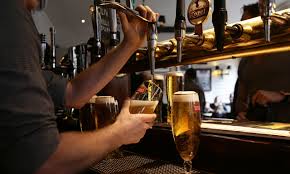
Drug addiction problems must be solved professionally if we want to defeat this scourge from our lives and society.
The fight against alcohol and drug addiction is one campaign that is not about to end any time soon. Each day new developments come up for fighting the vice yet at the same time users of these drugs also get more rooted to their addictive habits. Even though a lot is being done to correct this problem, many people are still suffering in silence for various reasons including denial. As addiction professionals from AWAREmed Health and Wellness Resource Center, we have made it a priority to help in finding lasting solutions about alcohol and drug addiction. And that is why we have consistently posted very informative blogs on this site to create more awareness and to educate the public of some of the actions they can take even before the get to us for help. Therefore “Drug addiction problems must be solved” is our choice topic for this article because it has come to our attention that despite the information available in the market about addiction recovery process and treatment, a majority of the societies are still ailing from this problem. Remember that AWAREmed Health and Wellness Resource Center is an establishment of doctor Dalal Akoury MD and also the President of the institution. Doctor Akoury is a veteran addiction expert who has dedicated several decades of her life in bringing hope to the hopeless drug addicts not just in the US but across the globe. Therefore if you think that you or someone you care about is addicted to drugs or alcohol, help is on the way if only you can schedule for an appointment with doctor Akoury today because drug addiction problems must be solved professionally.
However doctor Akoury is encouraging that even as you consider making that appointment, it is very important to note that the genesis of this entire recovery journey begins with you recognizing that you have a problem. This is the first step in getting help. We know that many people often think that they can tame or kick out the problem all by themselves, but the reality is that rarely works and that explains why getting help to tame the scourge of addiction is very important. Having felt that there are some signs of addiction in you, there are very many approaches you can apply including talking to someone you trust to help you make the right and productive decisions. Therefore if this is the approach you are considering, then it may help to talk to a friend or someone of your own age group at first, nonetheless a supportive and understanding adult should be your best option for getting help. We also know that sometimes it may not be easy for you to share this with your parents and therefore if this be the case, then you might want to approach a school counselor, a relative, a doctor, your favorite teacher, or even a religious leader. You must have noticed that the very moment you recognize the problem, action plan takes root and this is surely a step in the right direction.
Just to bring you up to speed with what to expect, it is important to understand from the very beginning that, overcoming addiction is not easy. Great determination will be expected of you along the way. And probably you will realize that quitting drugs or drinking is going to be one of the hardest things you or your friend have ever done. Even though that is so but be encouraged that it’s not a sign of weakness if you need professional help from a trained drug counselor or therapist. Most people who try to kick a drug or alcohol problem need professional assistance or a treatment program to do so and so you are not alone, keep on fighting because the end result is worth the sacrifice. Now let me bring to your attention some of the tips you need to succeed in this fight.
Once you start a treatment program, you may want to consider trying the following tips to make the road to recovery less bumpy:
Share with your friends about your decision to stop using drugs. This is very important because going forward you will need only those friends who will be kind enough to support your recovery journey entirely and drop those that will pull you back.
Moral support is very important and therefore always asks your friends or family to be available whenever you need them. During this journey a time will come when it will necessary that you call for support even during very odd hours of the night. Your friends should be therefore you and remember that if you’re going through a tough time, don’t try to handle things on your own and accept the help your family and friends offer.
Be very selective on the invitations you receive and only accept that won’t involve drugs or alcohol. Going to the movies is probably safe, but you may want to skip a Friday night party until you’re feeling more secure.
The temptation will always be there sometimes; therefore put in some strategies about what you’ll do should you find yourself in a place with drugs or alcohol. This may also mean planning with your parents, siblings, or other supportive friends so that if you call home using a specific code, they’ll know that your call is a signal to them that you need a ride out of there.
Moments of relapse; such times will always be there but always encourage yourself, that having an addiction doesn’t make a person bad or weak. If you fall back, talk to an adult as soon as possible and pick up the pieces and move on. There’s nothing to be ashamed about, however it’s important to get help soon so that all of the hard work you put into your recovery is not lost.
If you’re worried about a friend who has an addiction, you can use these tips to help him or her. For example, let your friend know that you are available to talk or offer your support. If you notice a friend backsliding, talk about it openly and ask what you can do to help.
If your friend is going back to drugs or drinking and won’t accept your help, don’t be afraid to talk to a nonthreatening, understanding adult, like your parent or school counselor. It may seem like you’re ratting your friend out, but it’s the best support you can offer.
And most importantly, offer a friend who’s struggling with addiction lots of encouragement and praise. It may seem funny, but hearing that you care is just the kind of motivation your friend needs.
Finally doctor Akoury is emphasizing that recovering from a drug or alcohol addiction doesn’t end with a 6-week or so treatment program you take in an institution. This is a lifelong process and we want to encourage you to consider calling us at AWAREmed Health and Wellness Resource Center for further direction. We will always be here for you and if you ever have a relapse, take immediate action because this can be very critical and getting help right away is advisable so that you don’t undo all the hard work you put into your initial recovery and remember don’t be a fried of relapse it is normal and not a failure on your part.










